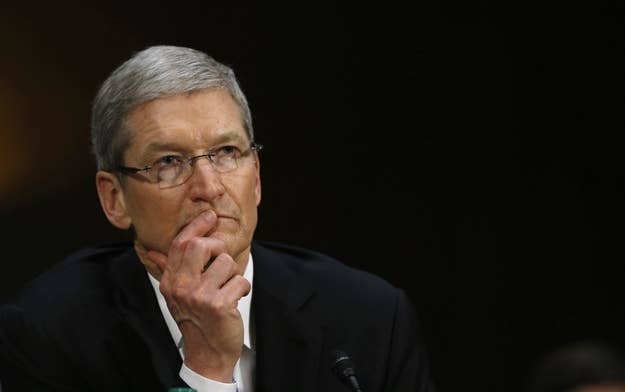
Part of the rationale for Apple's planned streaming music service, dubbed "iRadio," is to keep users in the Apple ecosystem and make the iPhone a more attractive device to drive further adoption.
Unfortunately for Apple, Google plans to bring its own streaming music service to the iPhone, Android head Sundar Pichai said last week at D11, a conference sponsored by AllThingsD. That would put iRadio in competition with not just Pandora, Spotify, Clear Channel's iHeartRadio and a host of other streaming music apps, but also with Google.
Complicating matters further, Apple has a history of running services that are often inferior to some of Google's services. Google Maps, for example, is a top-15 app on the App Store, while Apple had to publicly apologize for its mapping app. YouTube is a top-20 app on the App Store, after Apple punted it from the stock loadout of iPhone apps. Gmail clocks in at number 63 on the App Store.
Apple is betting on a streaming music service to help keep iTunes viable as consumers move from buying individual tracks for download to monthly subscription services that offer unlimited listening options. But with Apple's track record making services, it begs the question: why doesn't it let developers do the work to create the service?
In reality, an "iRadio" music service offered by Apple probably isn't going to be just another music service — it'll be app-centric and help support the iPhone as a platform. For example, if Apple were to let developers build apps on top of its music streaming service and song catalog, then the revenue Apple earns off such a business becomes more a question about monetizing apps rather than the economics of an online music business. Most reports suggest the iRadio will be free and supported by ads. Apple can pay out enough money to keep labels or artists happy, but even more tantalizing is the prospect of letting developers toy with a layer of music streaming and find other ways to monetize it other than through the raw playing of music. Then, Apple takes a 30% cut of the revenue from that app.
At the D11 conference, Apple CEO Tim Cook said something that was very uncharacteristic of the company: that it would, in the future, likely be more open about letting developers play with its operating system. Apple's iPhone operating system has always featured iTunes as a flagship service — Steve Jobs said at the unveiling that the iPhone was essentially a phone, an Internet device, and an iPod.
At one point, the iPod and the iTunes Music Store comprised half of Apple's revenues, a fact that inspired the company to build the iPhone, which subsequently went on to become Apple's flagship product. Now, it's App Store revenue payouts to developers that is growing rapidly — and with it, cuts to Apple.
Apple doesn't disclose App Store revenue, but it does periodically disclose how much it has paid out to app developers. Cook said Apple had paid out more than $9 billion to developers on that Q2 earnings call, and that number was at $7 billion in January. In March of last year,Apple said it paid out around $4 billion to developers. Apple takes a 30% cut of all App Store sales.
iTunes revenue for 2012 was something around $8 billion, per the numbers given by CFO Peter Oppenheimer in earnings calls each quarter. Backing out the January to March quarter for 2013, Apple's App Store revenue for that period was at least $1 billion on Apple's $8 billion in iTunes revenue. There's a missing quarter of Apple App revenue in the beginning of 2012, but proportionally it probably didn't generate a significant amount of revenue given that Apple said it had paid out $2.5 billion in July 2011.
Granted, there are a couple "more thans" sprinkled throughout the announcements, but even as recently as 2012 it directionally appears Apple's iTunes revenue comes primarily from music and movies. Now looking at 2013, the January to March quarter (Q2 2013) resulted in $2.4 billion in iTunes revenue, per Oppenheimer's comment on the most recent earnings call. Backing up from the developer payout announcements, the App Store revenue to Apple was something near $1 billion between January earlier this year, and Cook's announcement in April.
Again, there is probably an element of fuzziness to the calculations given that Apple isn't giving us exact numbers nor exact dates, but it demonstrates something profound: with the creation of the iPhone, apps have begun overtaking music as Apple's primary digital business.
Creating a music streaming service would likely only contribute a small sliver to Apple's top line — Apple might be better served devoting those resources to a new device (like an iWatch or getting a cheaper iPhone into the hands of more consumers). More precisely, it could focus on creating devices and the core experiences around it (like the operating system), and then let its platform do the work of building its services — music streaming included.
Reports suggest that Apple will unveil the "iRadio" at WWDC, its annual developer conference, next week. Apple traditionally unveils big updates to its iPhone and Mac operating systems at that conference. Per iRadio, it's probably just a convenience of timing, but it does seem like particularly good timing.
